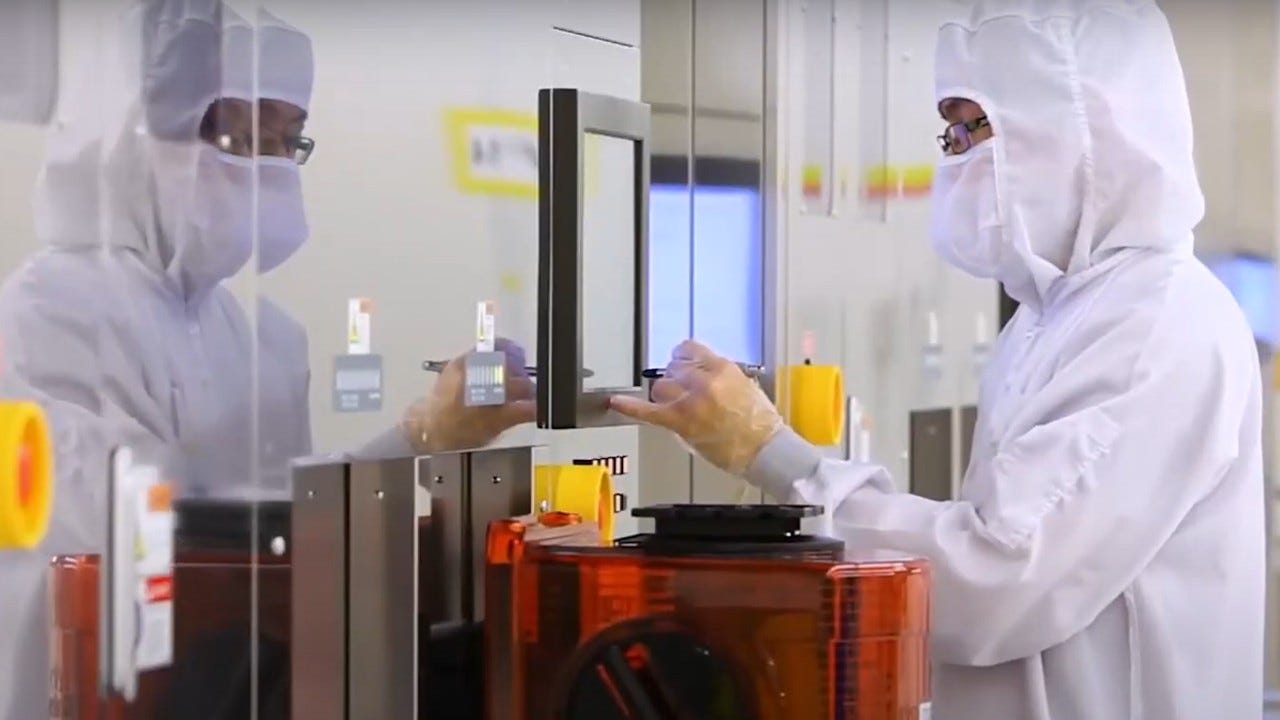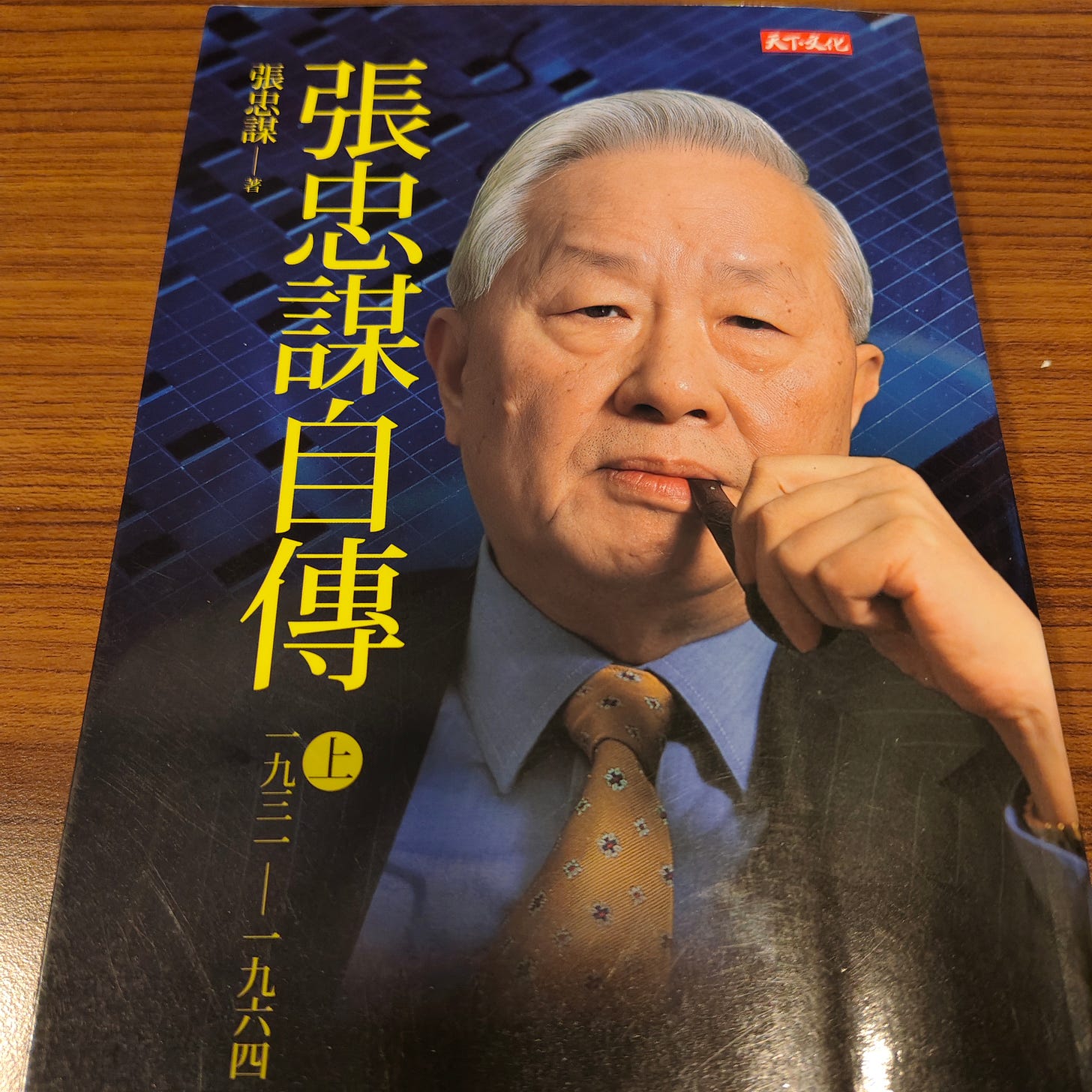From Good to Great – TSMC’s Success Goes Beyond Morris Chang’s Leadership
Morris Chang is undoubtedly the visionary behind TSMC’s success, and TSMC could not be so successful without Morris Chang. However, no company becomes great based solely on leadership. Its employees and managers must embody the company’s core values, regardless of who occupies the CEO’s chair.
Since Morris has already enjoyed the limelight, especially after publishing his second book, let’s spotlight the unsung heroes: the engineers and staff who work tirelessly daily to make TSMC the semiconductor giant it is today. They, too, deserve recognition.
Nvidia co-founder and CEO Jensen Huang understands this well. "Nvidia would not be possible without TSMC," he declared during the inaugural K.T. Li Award ceremony, where Chang was the first recipient. In his speech, Huang highlighted TSMC’s unparalleled ability to adapt to the ever-changing needs of its customers. "There is no other company as extraordinary as TSMC," he said, acknowledging its relentless pursuit of excellence.
TSMC has just reported record revenues and earnings for 2024 on January 16, 2025. It is poised to be BATMMAAN’s most trusted ally—Broadcom, Apple, Tesla, Microsoft, Meta, Amazon, Alphabet (Google), and NVIDIA, a group of eight trillion-dollar tech giants shaping the future of AI.
TSMC’s Unique Identity
Marc Hijink, author of Focus – The ASML Way, described how to spot a TSMC employee: the "T-sticker" on their scooter’s mudguard, the orange keychain around their neck, or the mandatory transparent bag used to prevent trade secret leaks. Smartphones are strictly prohibited inside facilities. To Western observers, such descriptions may evoke an image of a mundane, rigid workplace—seemingly at odds with a company that leads the semiconductor industry’s cutting edge.
Ben Chen, TSMC’s ninth employee and former vice president of procurement, addressed this paradox in a podcast interview with CommonWealth Magazine editor at large, Liang-rong Chen. "It’s like seeing a featherweight boxer defeat a heavyweight champion”—it’s unexpected, but behind that success lies rigorous training, agility, and strategy."
A Culture of Commitment and Perfection
TSMC’s journey has been anything but easy. Chen recalled the first tape-out when his team migrated from 6-inch to 8-inch wafers: "The yield was zero." The team had to meticulously analyze and correct every process step to achieve functionality. The same challenges apply today, as TSMC grapples with ramping up chip production in Arizona—fine-tuning equipment and processes to reach satisfactory yields is a monumental task.
Discipline, pride in workmanship, and a sense of ownership define TSMC’s workforce. When a 7.3-magnitude earthquake struck Taiwan at 1:47 a.m. on September 21, 1999, engineers voluntarily rushed back to the fabs within two hours to safeguard customers’ products.
Years later, I interviewed a young TSMC R&D engineer who had received an IEEE-IEDM Student Paper Award. He agreed to call me after work. The call came after 11:00 p.m. "Is this business as usual for you?" I asked. "Oh, it’s no big deal. I’m just happy I figured out a tough problem," he replied.
The Work Culture Paradox
TSMC’s workforce has been molded by Chang’s principles: painstaking attention to detail and utmost integrity. These values have earned TSMC reverence as the "Sacred Mountain" that safeguards democracy and technological advancement. Yet, paradoxically, some criticize its grueling work culture, with a Glassdoor rating of 3.1 and complaints about a "slave mentality" among engineers.
Many TSMC engineers have sacrificed health and family time to uphold the company’s manufacturing discipline. Y.P. Chin, currently TSMC’s Co-COO, once juggled responsibilities between Fab 1 and Fab 2 to ensure yield stability in his early years, all without asking for extra compensation. At Chin’s son’s wedding, Chang acknowledged his contributions, calling him "our engineer-in-chief"—a testament to Chin’s unwavering commitment.
Former TSMC chairman Mark Liu once addressed concerns about work-life balance, saying bluntly, "If you don’t want to work overtime, the semiconductor industry isn’t for you."
The Relentless Pursuit of Solutions
Morris Chang himself set the standard for relentless dedication. In 1997-1998, he gave each manager an acrylic plaque reading, “Come up with Solutions!” emphasizing that excellence was non-negotiable. Within TSMC, fabs constantly compete on yields and cycle times—complacency is not an option.
Chang himself built his career as a semiconductor engineer, first at Sylvania Electronics and later at Texas Instruments, where he achieved a successful career starting from yield improvements. In his memoir, he recalled working 14-hour days during his first 6 months at TI, voluntarily returning at night to monitor night shifts. His breakthrough—raising yield from below 5% to an unprecedented 40%—remains one of his proudest moments.
The Long Road to 7nm
TSMC’s dominance was not built overnight. In the first 10 years, TSMC’s pressure came largely from its customers. As a foundry, it must deliver chips on schedule, but demand often outpaces supply. Customers frequently vent their frustrations, insisting that time-to-market is critical. "Semiconductors are like flowers—nobody wants them if delivered late," one industry executive quipped.
It took decades of relentless refinement and investments in research and developing proprietary technologies to surpass competitors.
The Apple A12 Bionic, the first-generation 7nm FinFET chip, marked a historic milestone for TSMC, setting the stage for the company’s continued leadership in cutting-edge semiconductor manufacturing and advanced packaging technologies.
The Price of Greatness
Behind every cutting-edge chip is an army of engineers whose dedication, resilience, and sacrifices have propelled TSMC to the pinnacle of the semiconductor world. While Chang's leadership laid the foundation, it is the collective effort of countless individuals that makes TSMC extraordinary. Their work often goes unnoticed, but without them, the world’s most advanced technology simply wouldn’t exist.
As the semiconductor landscape continues to evolve, one thing remains certain: TSMC’s success is not just about its technology or its leader — it’s about its people and the culture.



Found this wsj article that describes the nature of the job perfectly: https://cn.wsj.com/articles/%E6%8F%AD%E7%A7%98%E4%B8%96%E7%95%8C%E4%B8%8A%E6%9C%80%E4%B8%8D%E5%8F%AF%E6%88%96%E7%BC%BA%E7%9A%84%E6%A9%9F%E5%99%A8-%E4%BB%A5%E5%8F%8A%E7%B6%AD%E6%8C%81%E5%AE%83%E9%81%8B%E8%BD%89%E7%9A%84%E9%80%99%E4%BD%8D%E5%A5%B3%E6%80%A7-4d4f9495?reflink=mobilewebshare_permalink
Very well written, but please realize that you are just glorifying a culture of giving up your life for the sake of the company. TSMC is not unique - all of semiconductor industry works this way. Intel, Samsung, and all their suppliers push their engineers and technicians to their limits, until they forget that there is a life outside of work. TSMC employees did not "rush voluntarily" to save the fab after an earthquake - they were on-call that night.
It is true that overtime and semiconductor industry are inseparable, and I am not here to argue that it needs to change. But it is exactly as dull and, exhausting, and soul crushing as it sounds.